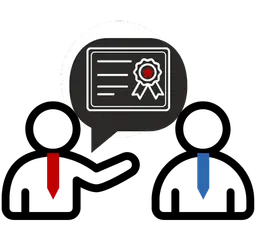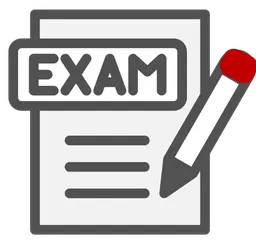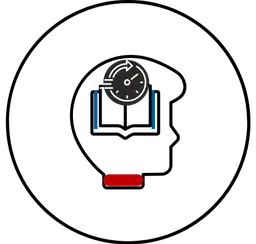This program is designed to empower participants with complete
knowledge of Program Management practices from PMI USA and helping them to clear PgMP
certification on their very first attempt with Above Target score.
Edhut presenting extensive training on Program Management Professional (PgMP)
certification from PMI. This training course will prepare participant for PgMP certification
examination along with empowering them with implementation knowledge of program management
practices.
Participant would be trained with tools and templates of program management. Every concept
is explained with a case study from real programs and participant would be experiencing
hands-on implementation of program management practices. Furthermore, this is not just a
training course on PgMP concept but it’s an engagement program until you get certified.
Who should attend?
Project managers, Senior Managers, Functional Managers, Program
managers, PMO / PMO consultants or anyone who typically support or manage project/program
containing complex activities spanning functions, organizations, clients and geographic
regions.
However, this course can be taken by anyone who wants to learn the fundamentals of program
management.
Introduction to PMI standard of Program
Management
Introduction to Project, Program, and Portfolio
The Relationship between Program Management, Operation Management and
Organizational Strategy
Program Manager Skills and Competencies
Introduction to Portfolio and Program Governance board and Office
Program Management Performance Domain
Definition of Program management performance domain
Program Life-Cycle Phases and Activities
Program Management Performance Domain interaction
Program Strategic Alignment
Organizational Strategy and Program Alignment
Program Mandate and Business Case
Program Plan & Program Roadmap
Program Lifecycle Management
Introduction to Program lifecycle
Program Definition phase, it’s sub-phases and activities
Program Benefits Delivery Phase and It’s Activities
Program Closure Phase, its sub-phases and its activities
Program Benefits Management
Introduction to Benefits Lifecycle and alignment of Benefit lifecycle to Program
Lifecycle
Introduction and Creation of Benefit Dependency Map (BDM)
Scoring Benefits, Finalizing Benefits Path and Preparing Benefit Register
Preparation of BRP (Benefits Realization Plan), Benefits Trajectory and Benefit
Distribution Map
Mapping Benefits to Program Management Plan
Introduction to Benefits Transition / Sustainment process and its activities
definition
Program Governance Performance Domain
Introduction to Program Governance domain
Prioritized governance goals
Governance Structure and Composition
Roles and Responsibilities
Issue Escalation, Audit and Quality Management
Program Stakeholder Management
Introduction to Program Stakeholder Management
Program Stakeholder Identification
Stakeholder Engagement Planning and linkage to Communication Management Plan
Question and Answer Sessions – Discussion with Edhut Solutions
Discussion on PgMP Application Filing
Discussion on Exam Question Patterns and Strategy
-
Achieve Strategic Alignment
Learn to align program
outcomes with organizational strategy to drive long-term value and competitive
advantage.
-
Enhance Stakeholder Engagement
Master techniques to
engage, communicate with, and manage diverse stakeholders for program
success.
-
Develop Governance and Decision-Making Skills
Build
strong governance frameworks to ensure accountability, transparency, and strategic
oversight.
-
Excel in Benefits Realization
Drive measurable
benefits realization and establish frameworks for sustaining value
post-program.
-
Advance Risk and Issue Management
Acquire advanced
skills in risk identification, mitigation, and issue resolution across program
components.
-
Optimize Resources and Financials
Manage complex
budgets and resources efficiently to meet program goals cost-effectively.
-
Lead Cross-Functional Teams
Strengthen leadership
skills to align multi-project teams, fostering collaboration across global
teams.
-
Expertise in Program Transition and Sustainability
Understand the transition phase of the program lifecycle and how to ensure
smooth handovers to operational units. Learn techniques to establish a sustainable
framework for long-term program benefits after the program concludes.
-
Navigate Change Management
Gain expertise in managing
program-level change effectively to minimize disruption and maximize adaptation
across projects.
-
Strengthen Financial Management Skills
Develop
advanced financial acumen to oversee program budgets, control costs, and ensure
financial viability.


















